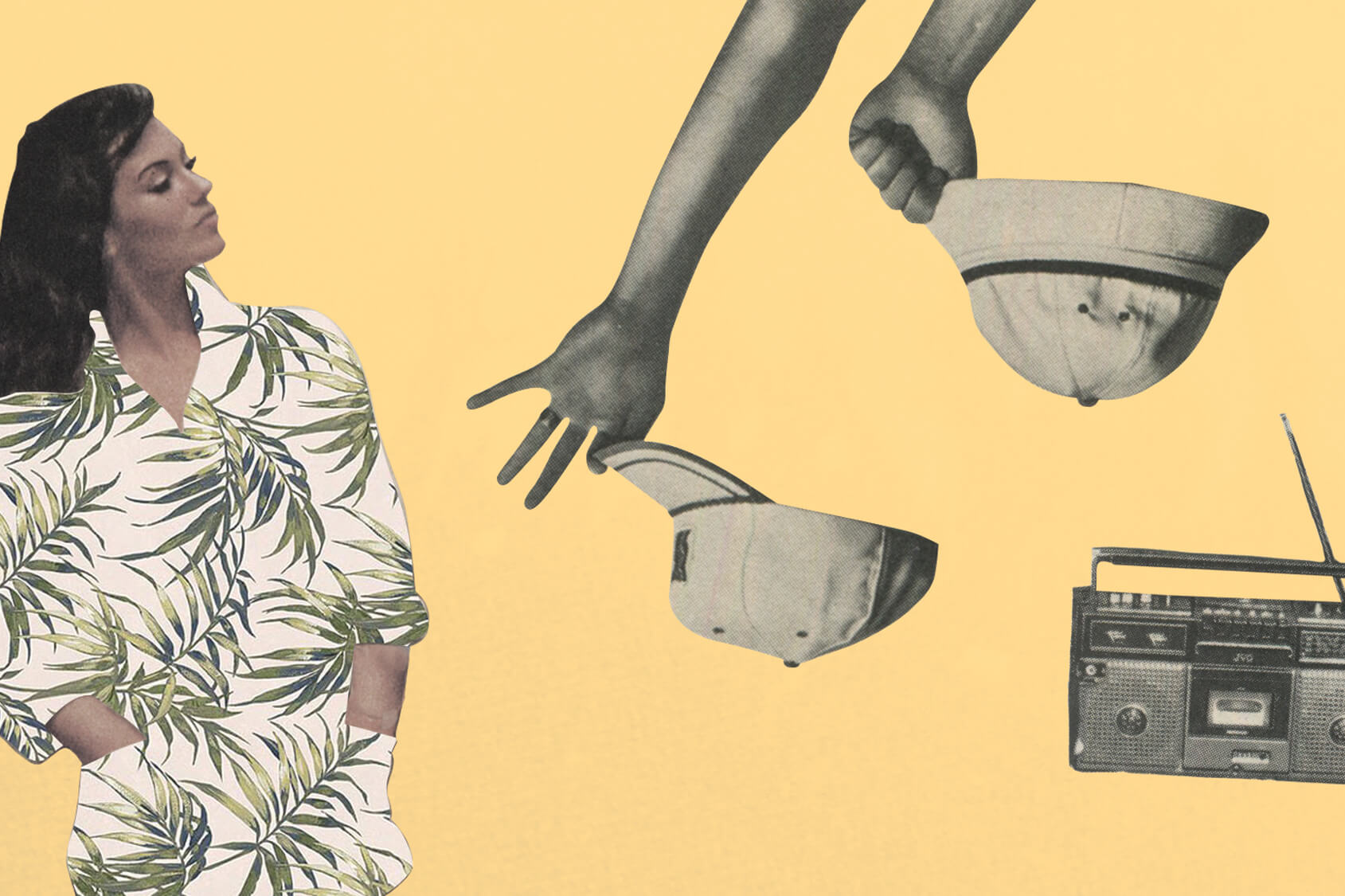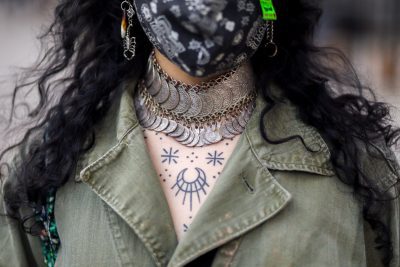Showtime Saints
It was the first week of August when I saw you, that time of year when the collective amnesia that we succumb to between June and September is at its least forgiving—when the swamp masquerades as a habitable city and those of us who have neither the sense nor the resources to evacuate do our best to tolerate the layer of grime coating our skin—and any surface unlucky enough to be at the mercy of the city’s sanitation budget. But you appeared, both entirely sensible and certainly resourced, when you boarded the Q train at the last stop in Manhattan before crossing the East River into Brooklyn. It was not clear then what you were doing in Chinatown or on the subway in August at all.
I was immersed in the self-pitying daze of a recent break-up when your posture and sense of purpose momentarily interrupted my hundredth mental attempt to catalog the assorted artifacts my ex-boyfriend left in the ashes. A half-empty bottle of Klonopin, photos we took of each other but never with each other, screenshots of his explicit death threats against me, the flimsy carbon paper on which I transcribed the threats in the courthouse, the smell of cigarette smoke lingering in otherwise clean sheets. It was a love story that could have happened anywhere but for which I blamed New York. To escape the static wreckage in my apartment, I set off on a pilgrimage to Sephora to indulge in the delicate delusion that upscale cosmetics can radically transform a life if you just pick the right ones.
You entered the train car with a crowd, stunning and severe in the tradition of cinema sirens who always debut on-screen in slow motion, pedestrian surroundings out of focus. As your fellow passengers surrendered to the adhesive of the plastic seats, your apparent immunity to the heat was evident in your even complexion and a flawless black ponytail that had been established with an almost surgical precision. Your face was made up in subtle bronzes and corals giving the appearance that you dwelled inside an Instagram filter, briefly giving new life to my cosmetics-based delusion. The palette was complemented by your Dolce & Gabbana Miss Sicily Leather Handbag (in coral) that you carried with a nonchalance that indicated it was nothing precious to you. You wore immaculate white pants and a fitted blazer in a tropical print. Not the gaudy tropical print of a Florida in-law but the elegant tropical print of the intimidating ex-wife whom you know deep down is the one he’ll never quite let go of.
That trip across the bridge made evident that one’s home city is the most likely destination for witnessing hope materialize and disappear again, which is itself a kind of magic
Your straight posture was in sharp contrast to my defeated slouch, your purposeful forward gaze at odds with my eager but anxious stare in the direction of three boys who had boarded the train through the same door. They were setting up for the great New York City subway pastime, “Showtime,” in which small groups of teen boys on the subway armed with boom boxes and otherworldly upper body strength and perform dance routines as a commercial enterprise. They swing by the overhead handles and suspend themselves upside down on the pole and perform miracles of timing and balance with their hats. The boys are a triple threat as skilled dancers, hilarious emcees, and hype men for each other during especially difficult moves. Even the foul-tempered curmudgeons who resist the boys’ attempts to clear a path for Showtime can be seen stealing glances at the upbeat, gravity-defying spectacles.
It is the ritual of the true New Yorker to oblige the request for space and, at the very least, to tolerate the show, even though Showtime is a nuisance to many—not just because the music can be jarring but because despite the incredible skill of the dancers, their swinging feet do come awfully close to passengers’ faces. While I’m an unabashed fan of this pastime, watching Showtime in a crowded bog of a train car alongside a hater or detractor would be uncomfortable. And I smelled detraction on you. Others looked around uneasily, similarly sensing what we were certain was going to be your sophisticated but train-shaking eyeroll and exasperated sigh at the disturbance.


illustration by Sarah Lutkenhaus
The boys’ routine was typically engrossing and beautifully executed. You turned your head only slightly to witness the show, your expression blank throughout while the rest of the train succumbed briefly to the enchantment of bodies doing feats foreign to our own self-conscious and inflexible heaps. I braced for a palpable sense of annoyance from your general direction when I reached for a sweaty dollar bill as the boys finished. The smallest of the trio timidly approached you with his hat extended and his head down, in preparation for either your inevitable rebuttal or worse, his apparent invisibility in the face of your uninterrupted gaze. I shared his reticence to look too intently at you but saw your lips form a polite grin as he approached. You reached into your handbag and pulled a crisp twenty-dollar bill from your wallet and placed it in his hat. I wondered in those moments if there is a kind of wealth that makes twenties indecipherable from singles, in the way that I don’t care if I drop dimes and pennies. But like the water turned to wine, your ice was made warm not with a tongue-twisting spell but by silent will.
It is the ritual of the true New Yorker to oblige the request for space and, at the very least, to tolerate the show, even though Showtime is a nuisance to many
The young man’s eyes lit up as he registered his tribute. The entire row of commuters took note of the bill’s denomination and our wordless commute grew more silent somehow. Then as if by an unspoken decree, at least a dozen of us reached into our pockets and handbags in search of more bills to dutifully contribute to the cause. Fives and tens emerged alongside the handfuls of crumpled singles, the young men’s faces nodding confused gratitude to each of us as we filled the hat. You appeared unaffected, as if sparking a miniature revolution in the area of public transportation arts patronage was typical of your summer afternoons.
All told, this bounty was likely under one hundred dollars. But more than an episode of spontaneous generosity, it was a tiny gesture of political resistance too. A month before we all shared a train car, Mayor Bill de Blasio had declared that the city would crack down on Showtime as part of a strategy to cut down on major crime from the bottom up by focusing on petty crime. Signs now line subway cars admonishing riders against tiny infractions. My thoughts turned from broken hearts and cosmetics to contagious charity and rogue philanthropy and the brutality of outlawing dancing by children. That trip across the bridge made evident that one’s home city is the most likely destination for witnessing hope materialize and disappear again, which is itself a kind of magic. It is magic most often found on the other side of bad love stories and indiscriminate laws, alive momentarily between the shore of the past and the shore of the possible. It moves above the earth without detaching from it. It looks ahead—without looking past us.
You might also like 


























